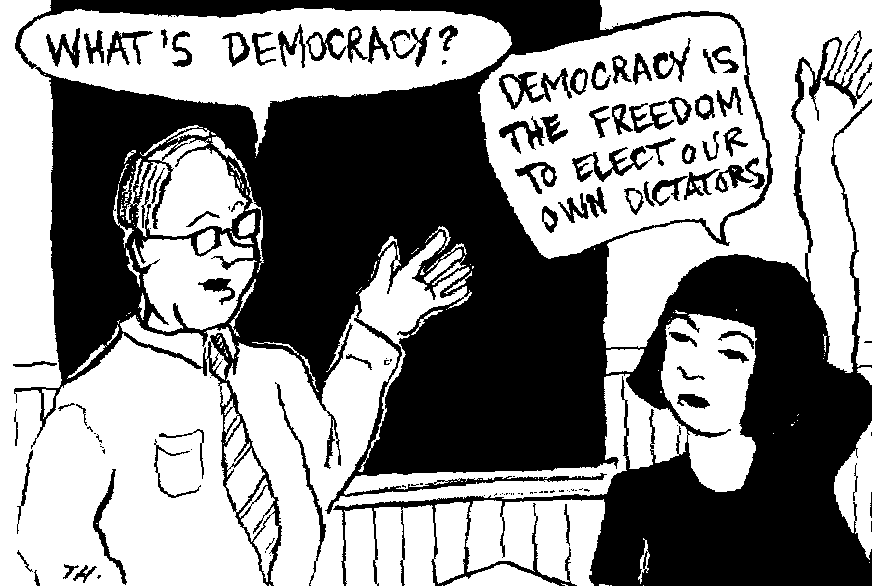amadeus
Bishop of Bio-Dome
You're changing the subject again.Then why do you insist the government take actions that are financialy damaging to the economy? Is it for the sake of your own conception of morality?
You're changing the subject again.Then why do you insist the government take actions that are financialy damaging to the economy? Is it for the sake of your own conception of morality?
We should just liberate North Korea
Only because you keep doing the same thing. If a general statement is relavent in one area, you must be able to explain why it is relavent in a different area it is still applicable to.You're changing the subject again.
I was going to say that morality doesn't govern foreign relations, but I liked the sound of "politics" better. It was an aesthetic choice, not a clarion call to those who want to discuss domestic politics.Only because you keep doing the same thing. If a general statement is relavent in one area, you must be able to explain why it is relavent in a different area it is still applicable to.
Okay. It is just that given your love of wordplay in other discussions I assumed it would apply here. Mea culpa.I was going to say that morality doesn't govern foreign relations, but I liked the sound of "politics" better. It was an aesthetic choice, not a clarion call to those who want to discuss domestic politics.
Morality doesn't govern foreign relations. That is what I meant.
Sorry, technical question: Iran was fighting our allies? What are you talking about? (I mean it as the question, not what are you talking about?!?!)Morality should not be the driving factor in foreign relations, but I feel it has to play some role. Selling weapons to the Iranians while they were fighting our allies
Iran-Iraq war. We supported Saddam because he opposed Khomeni who kicked out the pro-Western Shah.Sorry, technical question: Iran was fighting our allies? What are you talking about? (I mean it as the question, not what are you talking about?!?!)
http://en.wikipedia.org/wiki/United_States_support_for_Iraq_during_the_Iran–Iraq_warThe United States supported Iraq during the IranIraq War as a counterbalance to post-revolutionary Iran. This support included several billion dollars worth of economic aid, the sale of dual-use technology, non-U.S. origin weaponry, military intelligence, Special Operations training, and direct involvement in warfare against Iran.[3][4]
Support from the U.S. for Iraq was not a secret and was frequently discussed in open session of the Senate and House of Representatives, although the public and news media paid little attention. On June 9, 1992, Ted Koppel reported on ABC's Nightline, "It is becoming increasingly clear that George Bush, operating largely behind the scenes throughout the 1980s, initiated and supported much of the financing, intelligence, and military help that built Saddam's Iraq into" the power it became",[5] and "Reagan/Bush administrations permittedand frequently encouragedthe flow of money, agricultural credits, dual-use technology, chemicals, and weapons to Iraq."[6]
Spoiler :
I hate when someone makes a post with nothing but pics, and the pics don't work.
